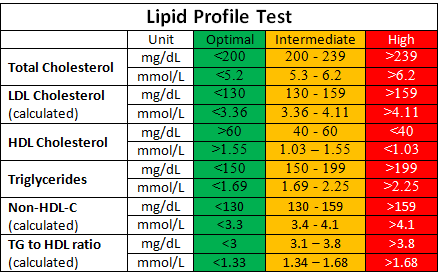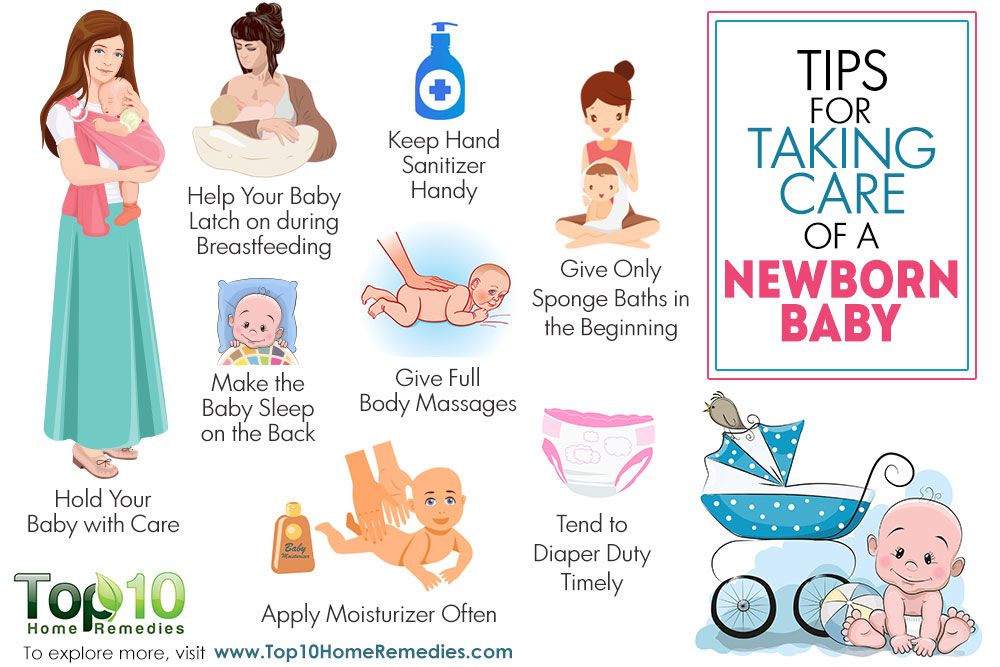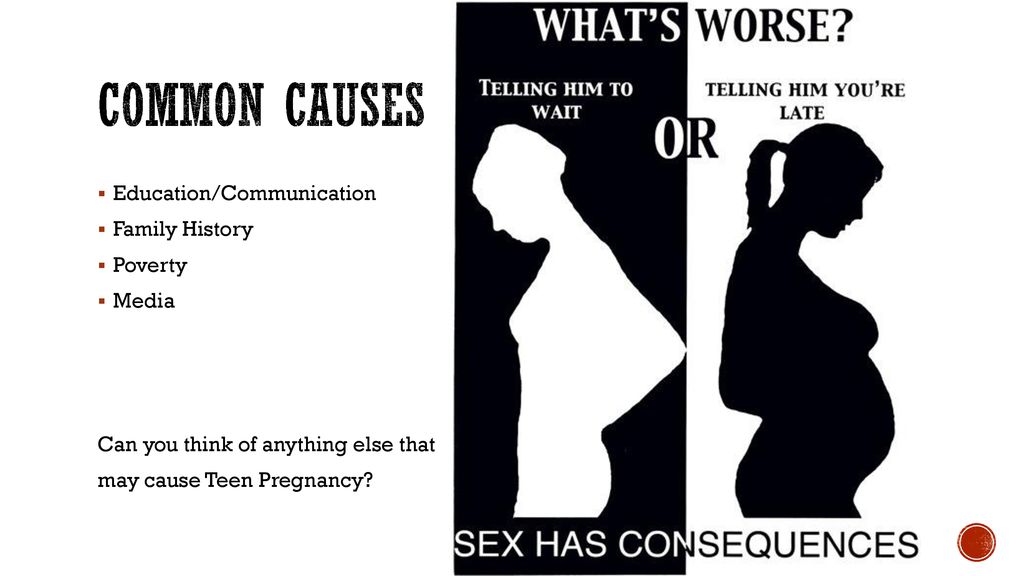What to expect 5th week of pregnancy
5 Weeks Pregnant | Pregnancy
When you're pregnant, you have lots of questions. Our week-by-week pregnancy guide is packed with lots of useful information. From what's happening inside your body, to how your baby is developing, and tips and advice on having a healthy pregnancy – this is your one-stop pregnancy guide!
- 1st trimester
- 2nd trimester
- 3rd trimester
Our week-by-week pregnancy guide is full of essential information. From early pregnancy symptoms to how your baby is growing and developing, you' ll find it all here.
- Week 4
- Week 5
- Week 6
- Week 7
- Week 8
- Week 9
- Week 10
- Week 11
- Week 12
To the outside world, you'll look much the same as usual – but on the inside, some amazing things are happening.
What's happening in my body?
Your baby's nervous system is developing, and the brain and spinal cord are taking shape. The tiny heart is starting to form and will beat for the first time around now.
Many women realise that they're pregnant around week 5. You might notice that your period is late, and you may feel a bit under the weather. If you're wondering when to take a pregnancy test, now is a good time as they are sensitive to changes in your urine from week 3 or 4 onwards.
Finding out that you are pregnant can be exciting, but it's normal to have worries too. More than 1 in 10 mums feel anxious during pregnancy. Try not to keep your worries to yourself – talk to your midwife or doctor. You could also try doing some relaxing breathing exercises.
Food cravings
Are you getting food cravings? Some people do, some don't. Pregnancy cravings are caused by hormonal changes affecting your senses of taste and smell. Try to eat a balanced healthy diet.
If you have any unusual cravings, like wanting to eat dirt, talk to your midwife or doctor, as you may have a condition called pica which is caused by a lack of iron.
Early pregnancy symptoms (at 5 weeks)
It's still early days, and many women won't know they're pregnant at 5 weeks. Not everyone has regular menstrual cycles, so you may not realise that your period is late. You might notice some light bleeding, and think it's your period, but it can also be a sign of implantation bleeding (when an embryo attaches to the lining of the womb).
In the 1st trimester, many women feel extreme tiredness. Other early signs of pregnancy can include:
- a metallic taste in your mouth
- sore breasts
- nausea - also known as "morning sickness", although you can experience it at any time (read about morning sickness in week 6)
- mood swings (week 8's page has information on mood swings)
- new food likes and dislikes
- a heightened sense of smell
- needing to pee more frequently
- a milky white pregnancy discharge from your vagina
- light spotting (see your doctor if you get bleeding in pregnancy)
- cramping, a bit like period pains
- darkened skin on your face or brown patches – this is known as chloasma faciei or the "mask of pregnancy"
- thicker and shinier hair
- bloating (read about bloating on week 16's page)
Read Tommy's guide to common pregnancy symptoms.
What does my baby look like?
Your baby, or embryo, is around 2mm long (about the size of a sesame seed). The face is starting to take shape, with a tiny nose and little eyes which stay closed until around 28 weeks. Your baby's brain and spinal cord are forming rapidly inside you.
Your baby already has some of its own blood vessels and a string of them will make up the umbilical cord. This cord delivers everything it needs from the placenta. The placenta, which is being created now, will give your baby nutrients and oxygen, while removing waste products.
Action stations
The advice for week 5 is the same as for week 4 - basically keep up the good work looking after yourself!
In particular:
Share the news with your GP or ask for an appointment with a midwife at your doctors' surgery. Alternatively you can refer yourself to your local hospital – look for contact details on their website.
You'll need to arrange a booking appointment. This usually takes place between weeks 8 and 12 and takes around an hour. You can talk about the options for your pregnancy and the birth. You will also be offered screening tests for infectious diseases and conditions such as Down's syndrome. Now is a good time to ask about the Maternity Transformation Programme and how it could benefit you.
This usually takes place between weeks 8 and 12 and takes around an hour. You can talk about the options for your pregnancy and the birth. You will also be offered screening tests for infectious diseases and conditions such as Down's syndrome. Now is a good time to ask about the Maternity Transformation Programme and how it could benefit you.
You will be offered your first dating scan at 8 to 14 weeks.
If it's your first pregnancy, you will probably have around 10 appointments and 2 scans in total.
Ask your midwife or doctor about online antenatal classes – they may be able to recommend one. The charity Tommy's has lots of useful information on antenatal classes and preparing you for birth.
Antenatal classes will give you the chance to meet other people and prepare you for parenthood. The NCT offers online antenatal classes with small groups of people that live locally to you.
Take prenatal vitamins. You're advised to take 400 micrograms of folic acid, every day, until at least week 12.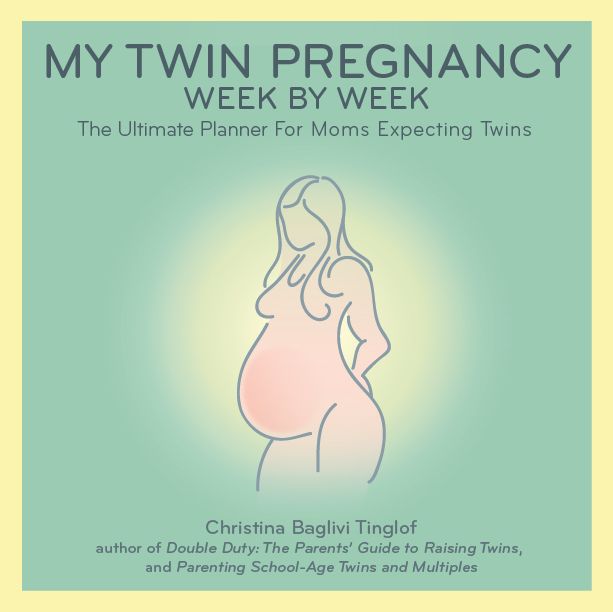 This helps your baby's nervous system to form and offers some protection from conditions such as spina bifida.
This helps your baby's nervous system to form and offers some protection from conditions such as spina bifida.
To keep bones and muscles healthy, we need vitamin D. From late March/early April to the end of September, most people make enough vitamin D from sunlight on their skin. However, between October and early March, consider taking a daily vitamin D supplement because we cannot make enough from sunlight.
Some people should take a vitamin D supplement all year round, find out if this applies to you on the NHS website. You just need 10 micrograms (it's the same for grown-ups and kids). Check if you're entitled to free vitamins.
Do you think you or your partner could have a sexually transmitted infection (STI)? If so, get it checked out, as this could affect your baby's development. Talk to your midwife or GP, or visit a sexual health clinic.
It's recommended that you do 150 minutes of exercise a week while pregnant. You could start off with just 10 minutes of daily exercise - perhaps take a brisk walk outside. Check out Sport England's #StayInWorkOut online exercises (scroll to the pregnancy section). Listen to your body and do what feels right for you.
Check out Sport England's #StayInWorkOut online exercises (scroll to the pregnancy section). Listen to your body and do what feels right for you.
There's no need to eat for 2. If you pile on the pounds, you could put you and your baby at risk of health problems such as high blood pressure. Eat healthily, with plenty of fresh fruit and veg, and avoid processed, fatty and salty foods. You may be able to get free milk, fruit and veg through the Healthy Start scheme.
If you have a long-term health condition, then let your specialist or GP know that you're pregnant as soon as possible. Don't stop taking any regular medication without discussing it first with your doctor.
How are you today? If you're feeling anxious or low, then talk to your midwife or doctor who can point you in the right direction to get all the support that you need.
You could also discuss your worries with your partner, friends and family. You may be worried about your relationship, or money, or having somewhere permanent to live. Don't keep it to yourself. It's important to ask for help if you need it.
Don't keep it to yourself. It's important to ask for help if you need it.
You and your family should follow the government and NHS guidance on coronavirus (COVID-19):
To find out about about COVID-19 and pregnancy, childbirth and breastfeeding, have a look at advice on the:
Go back to week 4
Go to week 6
5 Weeks Pregnant: Symptoms and Baby Development
Even though it’s still early in your pregnancy, a lot happens at 5 weeks, both for you and your baby. The placenta and the beginnings of the umbilical cord are developing, and you might feel a pregnancy symptom or two. Keep reading to learn more about what happens at 5 weeks pregnant, what symptoms to anticipate, and what changes to make to support a healthy pregnancy.
Check out what's going on and what to do during your fifth week of pregnancy:
This week, the neural tube continues developing, on its way to becoming your little one's spine and brain. The placenta and umbilical cord are also progressing in order to channel oxygen and nutrients to your baby.
Despite all the action going on, your little one is still very tiny, just the size of
a small orange seed or a grain of rice.
You may have no pregnancy symptoms at 5 weeks pregnant, but it’s also likely that you may experience fatigue, spotting, breast tenderness, and even morning sickness at this stage.
You might consider adopting some lifestyle changes at this point in your pregnancy, such as eating a healthy diet, avoiding certain foods, and reducing stress.
Can you be 5 weeks pregnant and test negative? This is a common question, as confirming your pregnancy is likely something you’ll want to do as soon as possible! Home pregnancy tests work by detecting levels of the pregnancy hormone hCG, or human chorionic gonadotropin, in your urine, which could be high enough at 5 weeks pregnant. If hCG levels are not yet high enough, you could receive a false negative. Wait a few days and test again before confirming with your healthcare provider.
If hCG levels are not yet high enough, you could receive a false negative. Wait a few days and test again before confirming with your healthcare provider.
“If I'm 5 weeks pregnant, what is my due date?” After confirming your pregnancy, this is likely the next question you’ll ask yourself! Again, your healthcare provider is your point person during your pregnancy and can help you determine your due date. In the meantime, try our Due Date Calculator.
How Many Months Is 5 Weeks Pregnant?Your healthcare provider will refer to your pregnancy in weeks, but it’s common to think in months, too. It gets a little tricky, but at 5 weeks pregnant, you’re usually considered to be in your second month of pregnancy, which typically includes weeks 5 through 8.
5 Weeks Pregnant: Your Baby's DevelopmentWhen you’re 5 weeks pregnant, important changes are taking place to support your baby’s development. Here's what's happening during your fifth week of pregnancy:
The placenta and the beginnings of the umbilical cord are forming.
 These channel essential nutrients (like calcium, folic acid, and other vitamins) and oxygen from your body to the embryo, playing a vital role in healthy development.
These channel essential nutrients (like calcium, folic acid, and other vitamins) and oxygen from your body to the embryo, playing a vital role in healthy development.The neural tube continues to develop. It will eventually become the spinal column and the brain. At this point, taking at least 400 micrograms of folic acid every day is a great way to support your baby’s healthy growth and development and reduce the risk of neural tube disorders.
Your baby's heart will develop from what is now just a bulge in the middle of the embryo, and the heartbeat itself may be detected as early as the sixth week of pregnancy.
At five weeks pregnant, the embryo is still very small but growing quickly! Picture a small orange seed or a grain of rice. At this stage, your little one could be between about 1/16 of an inch long, with a shape like that of a tiny tadpole.
Look at this visual of your uterus and the gestational sac at 5 weeks for an idea of how your body is creating a comfortable home for your baby during your pregnancy.
5 Weeks Pregnant: Your SymptomsIt’s possible to have a range of common symptoms at 5 weeks pregnant, or symptoms that come and go, or even no symptoms at all! Every pregnancy is different, but early signs that you’re pregnant could include both physical symptoms and emotional changes.
Physical and Emotional SymptomsThese are some of the physical and emotional symptoms you might experience at 5 weeks pregnant:
Morning sickness. It’s possible to experience morning sickness at 5 weeks pregnant. This unpleasant nausea and vomiting can happen in the morning, evening, or all day long. To help ease these symptoms, drink enough fluids to prevent dehydration and avoid any greasy, spicy, or fatty foods that may trigger your bouts of nausea.
 You also might want to eat small meals and snacks throughout the day rather than bigger meals.
You also might want to eat small meals and snacks throughout the day rather than bigger meals.Light bleeding or spotting. It’s not unusual to see some light bleeding or spotting at 5 weeks pregnant. If you see a lot of blood, if the spotting lasts longer than two days, or you have any concerns, consult your healthcare provider right away.
Breast tenderness. Around five weeks pregnant, a surge of hormones might cause your breasts to ache as they continue to stretch and grow in preparation for breastfeeding. If your breasts are not sore anymore at 5 weeks pregnant, that’s also normal, as symptoms can occur earlier or come and go.
Frequent urination. The constant and urgent need to pee can strike any time, especially as your kidneys are starting to have extra fluid to process, thanks to the increasing volume of blood in your body. Although this symptom can be annoying, if you need to pee a lot at 5 weeks pregnant, know it’s totally normal.
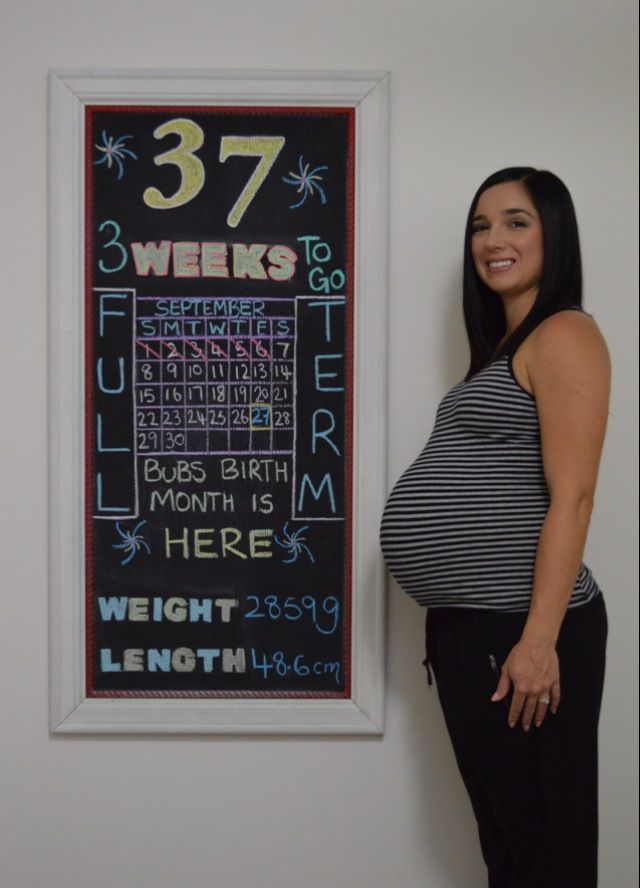
Acne. Hormonal changes may be to blame for any pregnancy-related acne you’re experiencing. Though there are ways to combat pregnancy acne, remember that it’s just one of those pesky symptoms that should clear once your baby is born.
Bloating and cramping. At 5 weeks pregnant, bloating, cramping, and feeling gassy or experiencing slight gas pains (which could occur at the same time as implantation bleeding) are quite normal. However, if you’re experiencing a lot of pain or severe cramping, bloating, or bleeding, contact your healthcare provider as soon as possible.
Fatigue. Don’t be surprised if you feel completely wiped out. At 5 weeks pregnant, your body is dealing with an increase in levels of progesterone, which can leave you feeling more tired than usual. Some things that may help include avoiding caffeine and vigorous activity before bed, keeping a consistent daily schedule, and taking time to rest or nap when you need it.
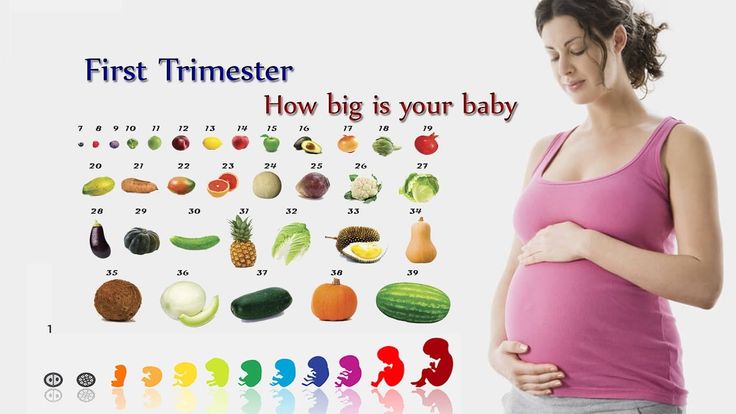 You'll be doing yourself and your little one a big favor by getting as much rest as you can now!
You'll be doing yourself and your little one a big favor by getting as much rest as you can now! Mood swings. Happy one moment, crying the next? Mood swings are common when you're pregnant and could feel like PMS at its worst. It may help to find some ways to distract yourself when an unpleasant mood interferes with your normal routine. Try going for a walk or listening to music, for example.
Mild or no symptoms. What if, at 5 weeks pregnant, you experience no symptoms? It’s not unusual to feel and look completely normal at this stage, or for certain symptoms to come and go. Be sure to consult your healthcare provider if you have questions about the changes that are taking place, or if the lack of any symptoms has you feeling uneasy.
The above signs and symptoms are common at 5 weeks pregnant, but nothing you experience should be particularly painful. If you’re feeling pain or observing changes that aren’t normal for you, contact your healthcare provider.
At 5 weeks pregnant, symptoms not to ignore include pain in your body (such as in your buttocks, upper abdomen, lower back, middle back, or shoulder), abnormal diarrhea or constipation, pelvic pressure, or passing blood clots.
Experiencing pain at your c-section scar (if you had one in the past), night sweats, shortness of breath, or feeling like it hurts to sneeze at 5 weeks pregnant are also symptoms not to ignore.
Basically, if anything is painful or abnormal, consult your healthcare provider right away. Keep in mind that symptoms of a second (or subsequent) pregnancy could be different from those of your first pregnancy.
Are you keeping an eye on your belly, wondering if it has gotten bigger? At 5 weeks pregnant, you probably won’t have a baby bump just yet, nor will you notice a darker line, called the linea nigra, on your stomach.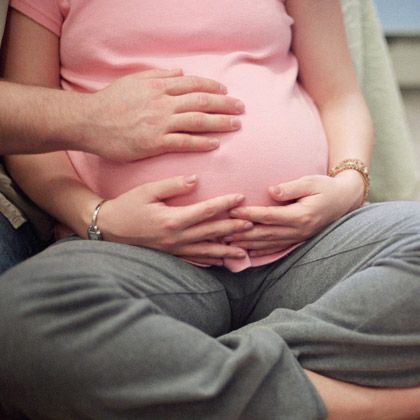 Everyone is different, but you might see a bulging belly at around 12 to 16 weeks and the linea nigra closer to 20 weeks.
Everyone is different, but you might see a bulging belly at around 12 to 16 weeks and the linea nigra closer to 20 weeks.
To help you get a better sense of what your belly might look like at 5 weeks pregnant, check out the visual below:
5 Weeks Pregnant: Things to ConsiderIt’s still early in your pregnancy journey, but there are plenty of important things to consider, from sharing the news with someone close to focusing on a healthy diet. Check out our lists below.
Lifestyle ChangesNow that you're pregnant, you may need to make some adjustments to make sure you and your baby stay healthy and safe.
Give some thought to what you're eating, making sure that you're consuming a variety of healthy foods. Avoid fish that could contain high levels of mercury—like shark, swordfish, and mackerel—and skip any food that’s undercooked or unpasteurized.
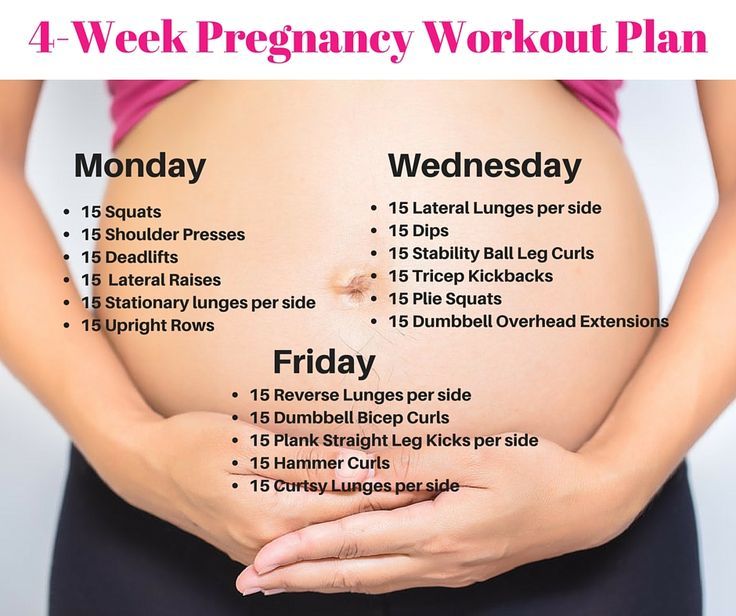 Foods to avoid when pregnant also include things like sushi made with raw fish and oysters, as well as soft cheeses like Brie and feta. These items can cause food-borne illnesses that can affect you and your little one.
Foods to avoid when pregnant also include things like sushi made with raw fish and oysters, as well as soft cheeses like Brie and feta. These items can cause food-borne illnesses that can affect you and your little one. Curious about other early signs and symptoms of pregnancy and how to cope? Try our Early Signs of Pregnancy quiz to learn more.
Have a cat? Now is the time to get someone else to take care of the litter box so that you can stay clear of toxoplasmosis, an infection that can harm unborn babies.
Sharing the news with your partner and others is a fun part of being pregnant, and so is looking ahead and learning about pregnancy and parenting. Here are some ideas.
If you haven’t yet told your partner you’re pregnant, and you’re looking for fun ways to surprise them, check out these cute and creative pregnancy announcements for partners.
As for telling others, you may prefer to wait at least until the end of the first trimester when the risk of miscarriage drops significantly.

Download our Pregnancy Guide to learn more about what to look forward to over the coming weeks and months. Our guide covers everything from nutrition and weight gain to all the questions you'll want to ask your healthcare provider.
If this is your first pregnancy, you might want to read up on the trimesters of pregnancy so you know more about what to anticipate in the coming months.
Start a journal. It’s normal to feel a range of different emotions as you adjust to pregnancy. Emotions can change from one day to the next and writing in a journal is one way to get your innermost thoughts and feelings out of your system. And as for those joyous moments, you may want to remember them!
Although you won’t be showing just yet, you may want to start a month-by-month baby bump photo shoot. You can either save the photos as a private keepsake or share the images on social media (once you’re ready to share news of your pregnancy).
 In the years to come, you’ll love to look back on how your bump grew during your pregnancy, and your little one will also love to see their first “home.”
In the years to come, you’ll love to look back on how your bump grew during your pregnancy, and your little one will also love to see their first “home.”
Have you seen your healthcare provider yet? Your first appointment and your subsequent checkups are the perfect time to raise questions and bring up concerns, such as the following:
Are there any possible risks for your pregnancy based on your health, age, or family history?
What should you do if you notice slight bleeding at this stage of pregnancy?
What is normal pregnancy discharge and should you be concerned if you see brown discharge at 5 weeks pregnant?
How often should you see your healthcare provider during your pregnancy?
How far along are you and when is your due date?
As you anticipate your new pregnancy and all that lies ahead, consider the following to-dos:
□ Read up on how to choose a prenatal care provider if you haven't chosen one already.
□ Schedule your first prenatal appointment. Your healthcare provider will be able to fill you in on the specifics of your care, but you can read up on prenatal care to get a general idea of what’s coming.
□ Find out who to call if your healthcare provider is unavailable or if it’s after hours and you have a medical concern.
□ Save your provider’s number to your phone and have emergency contact numbers stuck on your fridge and saved to your contact list, too.
□ Be ready to feel anxious or excited, worried or ecstatic—all normal reactions to becoming pregnant.
□ Soothe any cramps and backaches with a warm bath or a nap.
□ Cut out smoking and alcohol if you haven't already.
□ Although rare, it’s a good idea to read up on the signs and symptoms of an ectopic pregnancy just in case.
5-8 weeks of pregnancy
The fifth week for a baby
The fifth week of embryo development is significant for the separation of the body of the unborn child and extra-embryonic auxiliary structures - the yolk sac, amniotic bladder, chorion.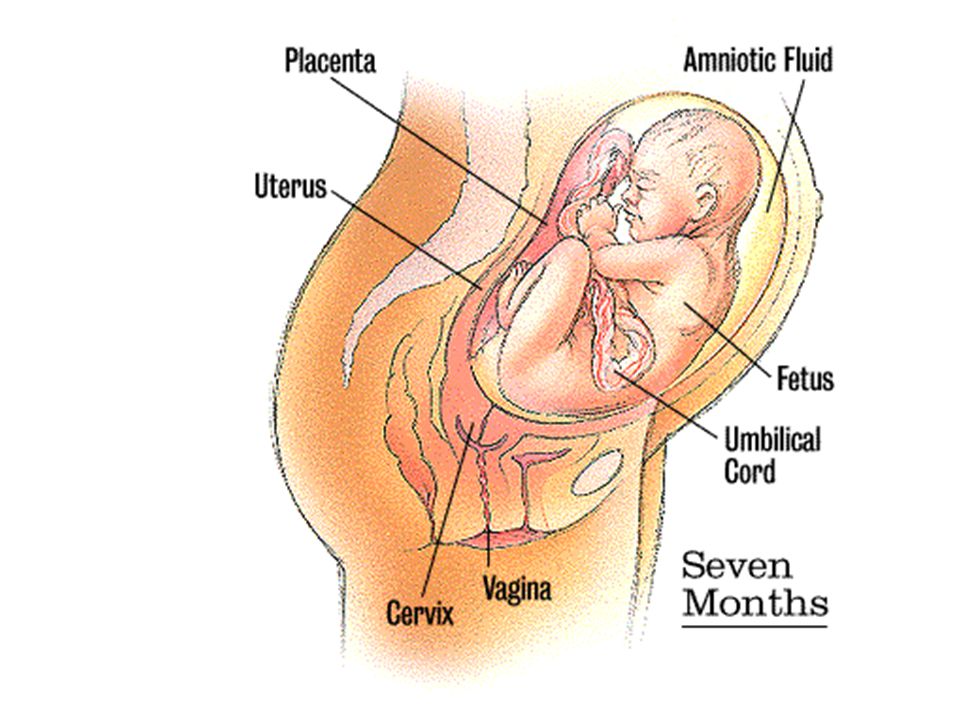 The process of active formation of organs and tissues continues. At this time, the birth of all the main systems of the future organism is taking place.
The process of active formation of organs and tissues continues. At this time, the birth of all the main systems of the future organism is taking place.
At the fifth week, the size of the embryo is 1.2-1.5 mm. It is possible to see the anterior pole - the place of the future head, as well as the posterior pole - the place of the future legs. The formation of the body occurs according to the law of symmetry - a chord is laid along, which is the axis of symmetry. It is around it that the laying of future symmetrical internal organs takes place. In the future, some of them will be formed by merging the rudiments (liver, heart), and some will remain double (lungs, kidneys, etc.).
The fetus in this period is in a curved state and looks like the letter C. By the end of the fifth week, the heart begins to pulsate, which has already formed. From the middle germ layer (mesoderm) begins the formation of the pancreas, liver, lungs, thyroid gland, trachea and larynx.
On the fifth allotment, the formation of the central nervous system also begins.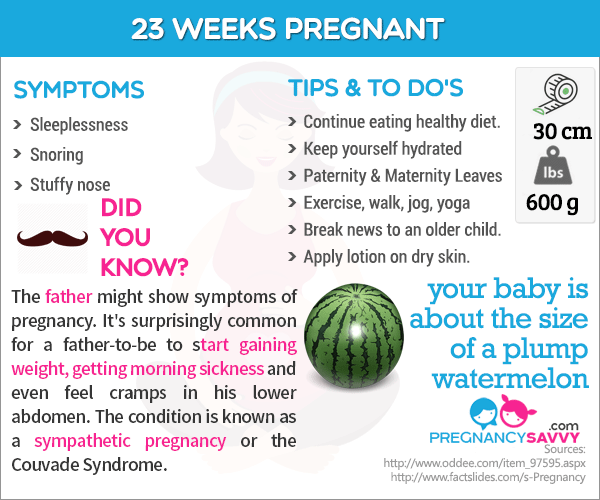 The cells, which were previously located flat, begin to roll up, i.e., the formation of the neural tube occurs. The viability of the fetus is largely dependent on the complete closure of the tube, so the fifth week is of great importance. Folic acid is able to contribute to the high-quality closure of the tube. Therefore, when planning a pregnancy, specialists recommend taking drugs containing this substance. Also, folic acid is needed throughout the first trimester, but its role is especially important during 5-7 weeks. Along the tube there are bulges from which the formation of the brain sections will occur.
The cells, which were previously located flat, begin to roll up, i.e., the formation of the neural tube occurs. The viability of the fetus is largely dependent on the complete closure of the tube, so the fifth week is of great importance. Folic acid is able to contribute to the high-quality closure of the tube. Therefore, when planning a pregnancy, specialists recommend taking drugs containing this substance. Also, folic acid is needed throughout the first trimester, but its role is especially important during 5-7 weeks. Along the tube there are bulges from which the formation of the brain sections will occur.
The processes located along the neural tube are called somites and represent future muscles.
Also, the fifth week is characterized by the beginning of the formation of germ cells in the embryo - this is another important moment in his life. In future people, at the stage of early development, the rudiments of eggs and spermatozoa are already laid.
Expectant mother at the fifth week
The period of five weeks is quite early, so if changes occur in the female body, they are insignificant.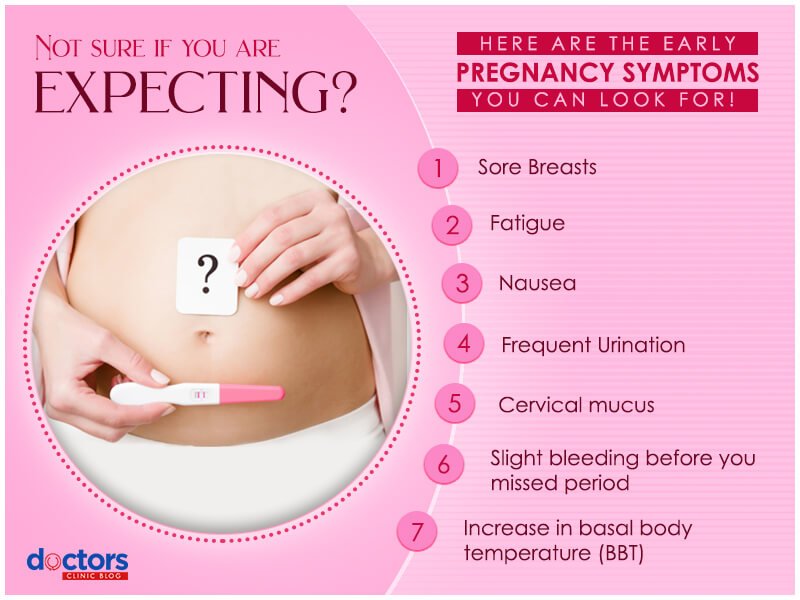 At this time, the cycle delay is one week, which not every woman pays attention to. If she is aware of her situation, thoughtfulness, peace, or, conversely, high activity may appear.
At this time, the cycle delay is one week, which not every woman pays attention to. If she is aware of her situation, thoughtfulness, peace, or, conversely, high activity may appear.
Odor intolerance and nausea are likely from the fifth week. Most women are prone to early toxicosis, which manifests itself in the form of vomiting, which usually occurs in the morning. Toxicosis can be both mild and severe. The second is accompanied by incessant vomiting. Women who are faced with a severe form of toxicosis are subject to hospitalization.
A feeling of heaviness in the chest or slight pain when pressed is also a sign of early pregnancy.
Sixth week for baby
During the sixth week, the embryo grows from approximately 3 mm to 6-7 mm. At this time, the shape of the embryo is cylindrical and resembles to a certain extent the embryo of a fish. The rudiments of arms and legs appear along the body, which in the sixth week have the form of processes. The arms are formed faster than the lower extremities; by the end of the sixth week, the rudiments of the hands are formed. The legs are not yet formed at the moment and remain in the rudimentary stage. At this time, the tube must completely close, and the rudiments of the hemispheres are formed from the brain bubbles.
The legs are not yet formed at the moment and remain in the rudimentary stage. At this time, the tube must completely close, and the rudiments of the hemispheres are formed from the brain bubbles.
The heart at this stage is characterized by intensive development and active pulsation. Inside this organ, division into chambers and compartments occurs, ventricles and atria appear. If you use highly sensitive ultrasound equipment, the heartbeat of the fetus can already be caught. 100-160 beats per minute at this stage makes the heart.
Also on the sixth week, the digestive tube is formed, which ends with the formation of the large and small intestines, stomach.
The sex glands continue to develop, the ureters are formed. An important process at this stage is the formation of chorionic villi, i.e., the laying of the future placenta. The sixth week is marked by the active stage of vascular growth and the "training" of the placenta. Of course, as a separate organ, the placenta has not yet formed and does not fulfill its functions, but the first trial steps are already being taken - there is an exchange of blood between the mother and the embryo, such an exchange is the precursor of future blood circulation.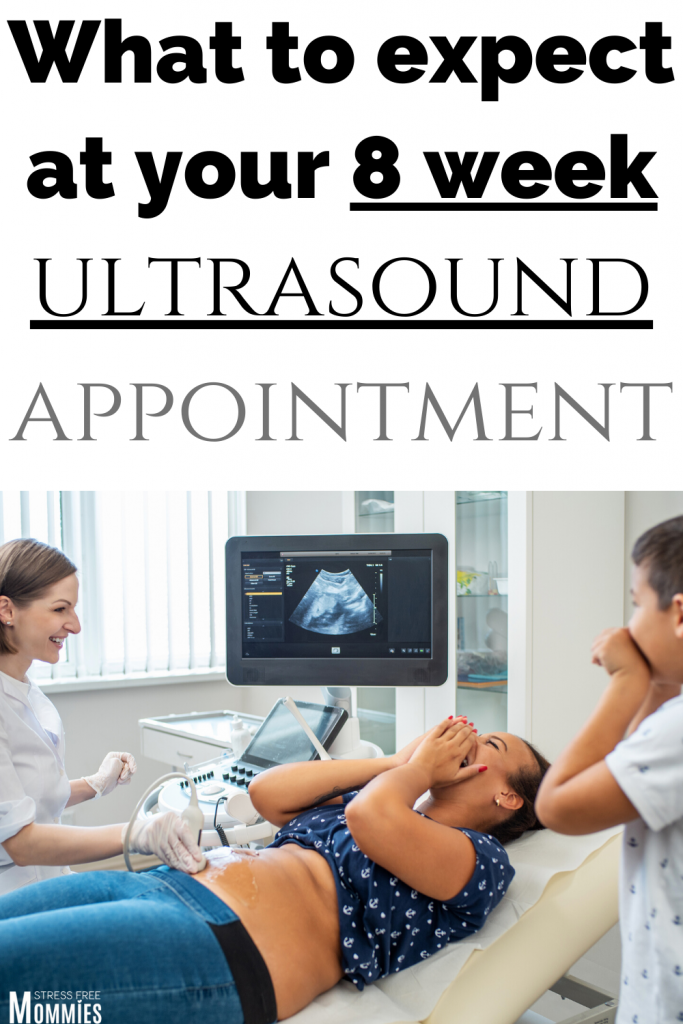
The sixth week for the expectant mother
If the cycle is delayed by two weeks, which corresponds to the sixth obstetric week, the manifestations of toxicosis may increase in a woman. Nausea often leads to vomiting. If this happens more than two or three times a day, you should contact a specialist. In the chest, vascular permeability changes due to changes in the hormonal background. Therefore, a periodic sensation of tingling may join the feeling of fullness of the glands.
A woman in the sixth week is often accompanied by irritability, drowsiness, fatigue and weakness. All of these symptoms are the result of the influence of the hormonal background, which tries to create the best conditions for the development of the child. Experts note that the severity of the course of toxicosis directly depends on the emotional state of the woman. Therefore, the expectant mother should limit physical activity, avoid stressful situations, provide positive emotions and good mood.
Women may develop new taste preferences. Undoubtedly, it is necessary to ensure the comfort of the expectant mother, but one should not forget about common sense when choosing a diet. Even if it attracts to harmful products, they should not be consumed, of course, smoking and alcohol are contraindicated. It is undesirable to use smoked meats and any products containing chemical elements. The more correct the diet, the more benefits it can bring to the unborn baby.
Special attention should be paid to the water balance. Dehydration can only aggravate toxicosis, so it is important to monitor the amount of fluid consumed. Sometimes fruits, water and juices even become the only possible food for a woman.
Seventh week for a baby
At this age, the embryo reaches a length of 8-11 mm, its weight at the seventh week is less than a gram. The head is equal in size to half the body, while the shape of the body is arched. You can see in the lower part of the pelvic end a continuation of the coccyx, which outwardly resembles a tail.
On the seventh week, the formation of the embryo occurs quite intensively. On the hands, you can already see the interdigital spaces, but there is no division into separate fingers yet. The embryo begins to develop a face, on which a nasal fossa appears. In this place, a nose is formed a little later. Also in the seventh week, the initial development of the auricles occurs. They begin to form from two elevations on the head, both jaws are formed.
The seventh week is characterized by such an important event as the formation of the circulatory system of the female body and the fetus, as well as the umbilical cord. There is uteroplacental blood flow. From now on, tissue respiration and nutrition of the fetus occur through maternal blood. The unborn child falls under the protection of the mother's body. The future placenta (chorion) not only nourishes the embryo, but also acts as a protective filter, preventing harmful microorganisms and toxins that can significantly harm the fetus.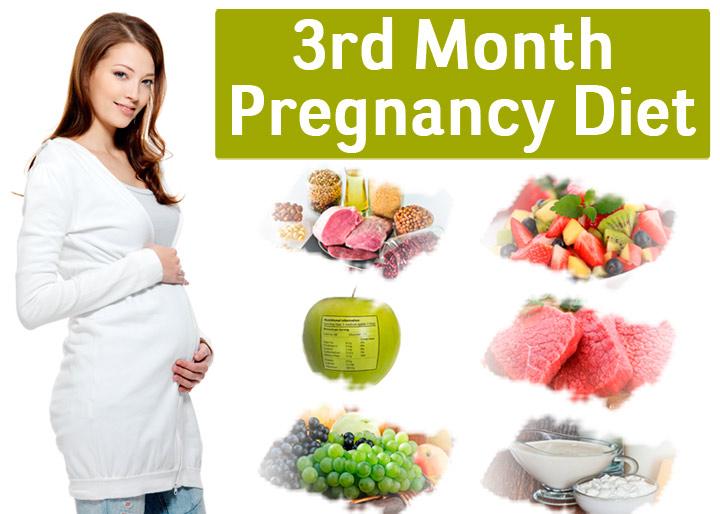
The seventh week for the future mother
From the seventh week, the growth of the uterus begins in a woman, this can be determined by a specialist during a gynecological examination. At this stage, many expectant mothers have an increase in the abdomen, which is one of the main signs of pregnancy. The growth of the uterus and the size of the embryo cannot cause an increase in the abdomen. This is due to the action of progesterone, which leads to lethargy of the intestinal loops, as well as a decrease in the tone of the anterior abdominal wall. Bloating occurs, which is the cause of visible changes in the abdomen.
Increased urination is a consequence of the fact that the total volume of blood in the female body increases. Such a change will accompany the expectant mother throughout the pregnancy and will especially manifest itself in the last trimester. If pain occurs during urination, then there is a reason for a visit to the doctor, since this is not considered the norm.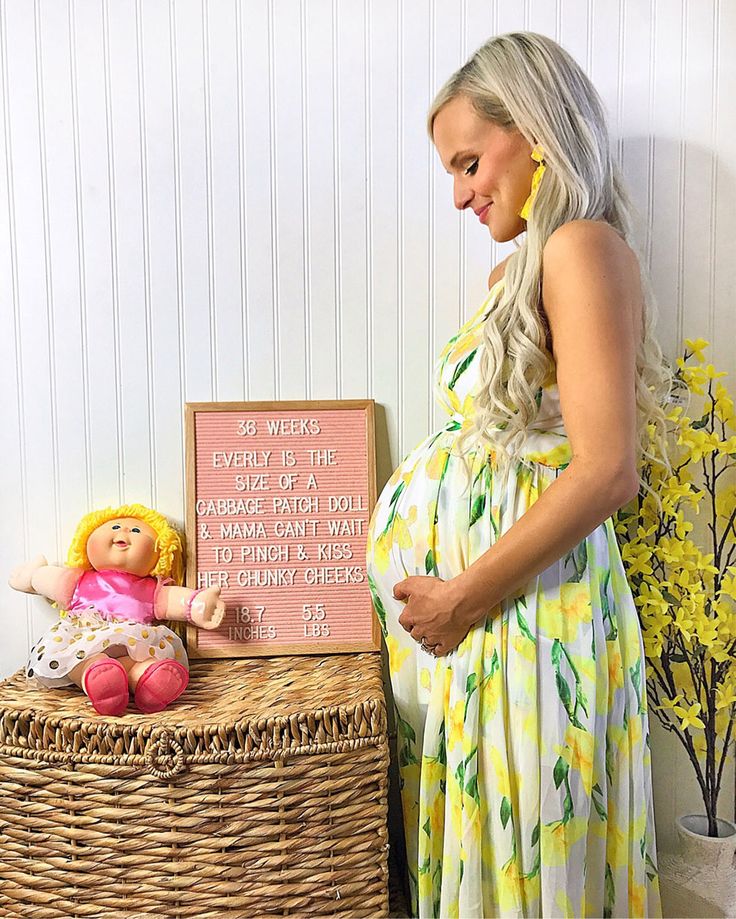 Changes in bowel function are possible, constipation and diarrhea can occur with equal probability. The reasons may be a change in the usual diet or hormonal levels. Since regular daily stools ensure the timely removal of toxins from the body of the expectant mother, it must be carefully monitored. If you have problems with bowel movements, you should consult a specialist.
Changes in bowel function are possible, constipation and diarrhea can occur with equal probability. The reasons may be a change in the usual diet or hormonal levels. Since regular daily stools ensure the timely removal of toxins from the body of the expectant mother, it must be carefully monitored. If you have problems with bowel movements, you should consult a specialist.
Eighth week for baby
The embryo is 15-20 mm long by the beginning of the eighth week and 40 mm by the end of it. The mass of the embryo is five grams. After the eighth week, the embryonic period ends and the fetal period begins. After eight weeks, experts no longer use the term embryo, the unborn child is called the fetus until it is born. The main features of the eighth week are the intensive development and modification of the embryo. There is a straightening of the body, and it is increasingly divided into segments - limbs, head and torso.
At this stage, the nervous system is actively developing. Also on the eighth week, the brain is divided into sections, the hemispheres are more clearly outlined, convolutions are formed.
Also on the eighth week, the brain is divided into sections, the hemispheres are more clearly outlined, convolutions are formed.
The face of the unborn child becomes more prominent, ears, nostrils, eyes are formed. By the end of the eighth week, the upper lip is fully connected, and the face looks quite distinctly formed.
The process of ossification of the skull, arms and legs belongs to the features of this period. Bones harden. The formation of the fingers occurs, and the large one becomes isolated and opposed to the palm. Large joints (elbows and knees) are formed.
Brain structures, which are responsible for muscle tone, and the muscular system itself are also being actively formed. This allows the embryo to perform a variety of movements. The development of the digestive tract is almost completed by the end of this week. The intestines and stomach are supplied with nerve endings, which in the future will be able to provide motor functions of the gastrointestinal tract, the cavities of the kidneys, heart, bladder and ureters are formed.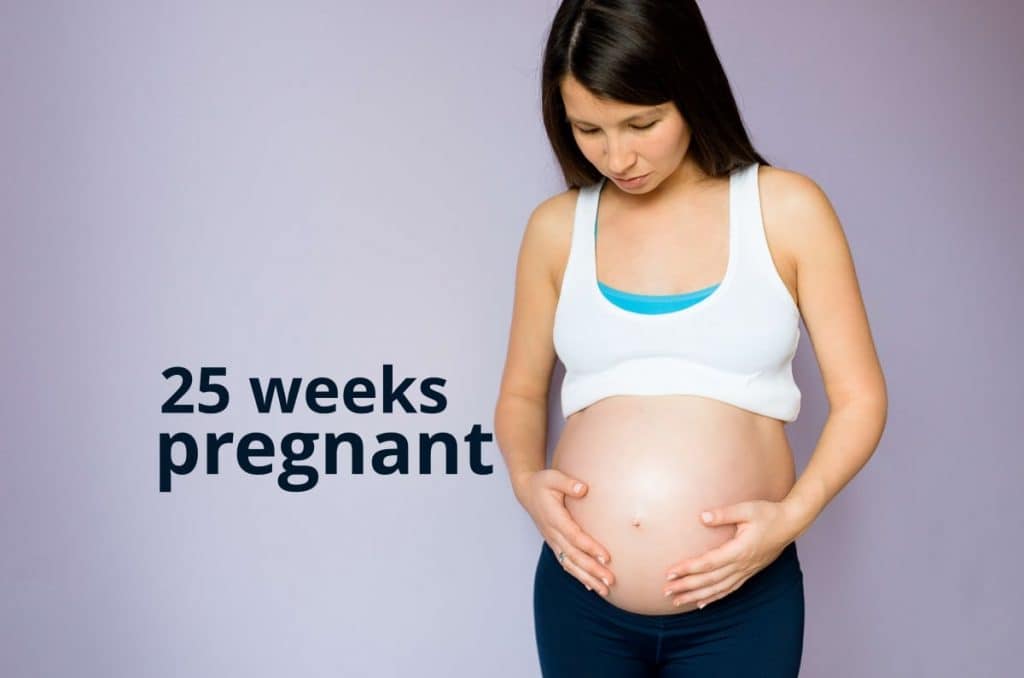
The vascular system develops in the future placenta. The chorionic villi penetrate deeply into the wall of the uterus. Utero-placental circulation becomes full. The complex supply of the growing fetus is provided by the vessels of the umbilical cord, through which it receives blood enriched with oxygen and a variety of nutrients. Also, through these vessels, metabolic products and carbon dioxide are removed.
The eighth week for the expectant mother
The eighth week does not bring significant changes to the woman's body. All manifestations of toxicosis do not change their character, but are already much easier to bear. This is due to the fact that by this time pregnant women get used to their condition and find factors that facilitate it and create comfort. These can be certain foods, good sleep, one or another diet, walks, etc.
In this material, the gestational age is indicated as obstetric, that is, it is calculated from the first day of the preceding pregnancy menstruation.
5th week of pregnancy what happens to the fetus
This is a period of rapid growth of the embryo. At the fifth obstetric week, the heart of the crumbs already begins to beat, and organs and tissues are also differentiated.
What happens to the child?
The fetus is not yet quite like a small child. Its weight is only one gram, and its height is 1.5-2 mm. Nevertheless, important changes are taking place in this tiny organism, internal organs are intensively formed.
- The embryo already has the rudiments of limbs and even fingers, the cochlea of the inner ear, eyes and mouth are formed. At this stage, cells begin to form that are responsible for the sex of the child.
- The spine and internal organs such as the liver, intestines, pancreas are intensively formed, the digestive and urinary systems are taking shape.
- The cardiovascular system develops, the first blood vessels appear. By the middle of the fifth week, the tiny heart is beating at about 100 beats per minute.
Over time, contractions will reach 180 beats.
- The development of the nervous system begins, tissues of the spine and spinal cord appear.
At this time, the placenta is actively developing - one of the most important and unique organs that exists only during pregnancy. The placenta connects the mother and the unborn child, providing the latter with all the necessary nutrients. Such a close relationship between mother and baby through the placenta is a reason to reconsider your work and nutrition regime, to give up bad habits.
Do not forget that the fifth obstetric week coincides with the third embryonic week, that is, the real age of the baby is two weeks less.
What are the changes in the woman's condition in the fifth week?
A woman's pregnancy will be indicated by the absence of menstruation, as well as new symptoms and sensations.
- Signs such as drowsiness or insomnia, mood swings, fatigue, tearfulness, taste changes, increased sense of smell, if they were before, persist.
- In addition to engorgement and increased sensitivity of the mammary glands, pigmentation of the nipples and a strip down from the navel may appear.
- At this time, the first signs of toxicosis are likely, so avoid the factors provoking it: strong odors, fatty and too specific food. Add foods rich in vitamin B6 to your diet.
- The urge to urinate is usually more frequent.
- Always watch the nature of your sensations in the lower abdomen. If the pain is minor and short-lived, then do not worry. If they intensify or are accompanied by spotting, cause you discomfort, contact your doctor immediately.
Do not forget that the absence of the above symptoms is also considered the norm, because the size of the baby is still very small.
If there is nothing else that bothers you, then most likely the pregnancy is going well.
If any of the above symptoms are present and no menstruation occurs, a pregnancy test is negative, it is recommended to repeat the pregnancy test after 3-5 days.
![]()

